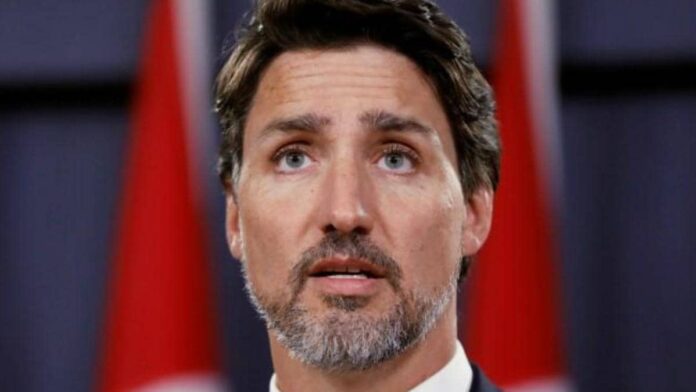GG News Bureau
New Delhi, 17th Oct. Canadian Prime Minister Justin Trudeau acknowledged that he lacks concrete evidence to implicate India in the killing of Khalistani leader Hardeep Singh Nijjar. In response, India’s Ministry of External Affairs (MEA) strongly slammed Trudeau’s statement, asserting that it confirms Canada’s failure to provide any evidence supporting the allegations against India. The MEA emphasized that Trudeau is solely responsible for the damage to India-Canada relations.
The controversy began in June last year when Nijjar was killed in British Columbia. Trudeau had accused India of involvement in the incident, which India dismissed as “absurd” and labeled as a political ploy by Trudeau. While testifying before a foreign inquiry, Trudeau admitted that his government initially based its accusations on intelligence rather than concrete evidence. He mentioned that intelligence shared by Canada and its allies suggested the involvement of Indian agents, but acknowledged that there was no substantial proof at the time.
Trudeau said, “We informed India that it was not concrete evidence but rather preliminary intelligence.” He added that Canada sought India’s cooperation behind the scenes, urging them to provide any evidence they might have. According to Trudeau, their response was that the matter involved Canada’s security agencies, and it was up to them to determine what they knew. Trudeau noted, “At that time, it was mostly intelligence, not hard evidence, so we suggested working together.”
India promptly dismissed Trudeau’s remarks. MEA spokesperson Randhir Jaiswal stated, “What we have heard today reaffirms what we have been saying all along—Canada has not provided any evidence to back its serious allegations against India and Indian diplomats.” Jaiswal further attributed the strain in bilateral ties solely to Trudeau’s actions, calling them reckless and damaging to the relationship.
Tensions escalated further when Canada identified India’s High Commissioner and other diplomats as “persons of interest” in the Nijjar case. In retaliation, India summoned Canada’s Acting High Commissioner Stewart Wheeler and expelled six Canadian diplomats. The Indian government condemned Canada’s “baseless allegations” and expressed concerns over the safety of its diplomats amid rising extremism.
Following these developments, India recalled its High Commissioner Sanjay Kumar Verma and warned of further action against Canada’s alleged support for extremism. Canada’s initial accusations, made without clear evidence, have significantly strained already fragile relations, particularly over Canada’s perceived tolerance of Khalistani activities within its borders. India has consistently criticized Canada for providing a haven for such elements.
The post Trudeau Admits No Evidence Linking India to Nijjar’s Killing; MEA Responds Strongly appeared first on Global Governance News- Asia's First Bilingual News portal for Global News and Updates.



